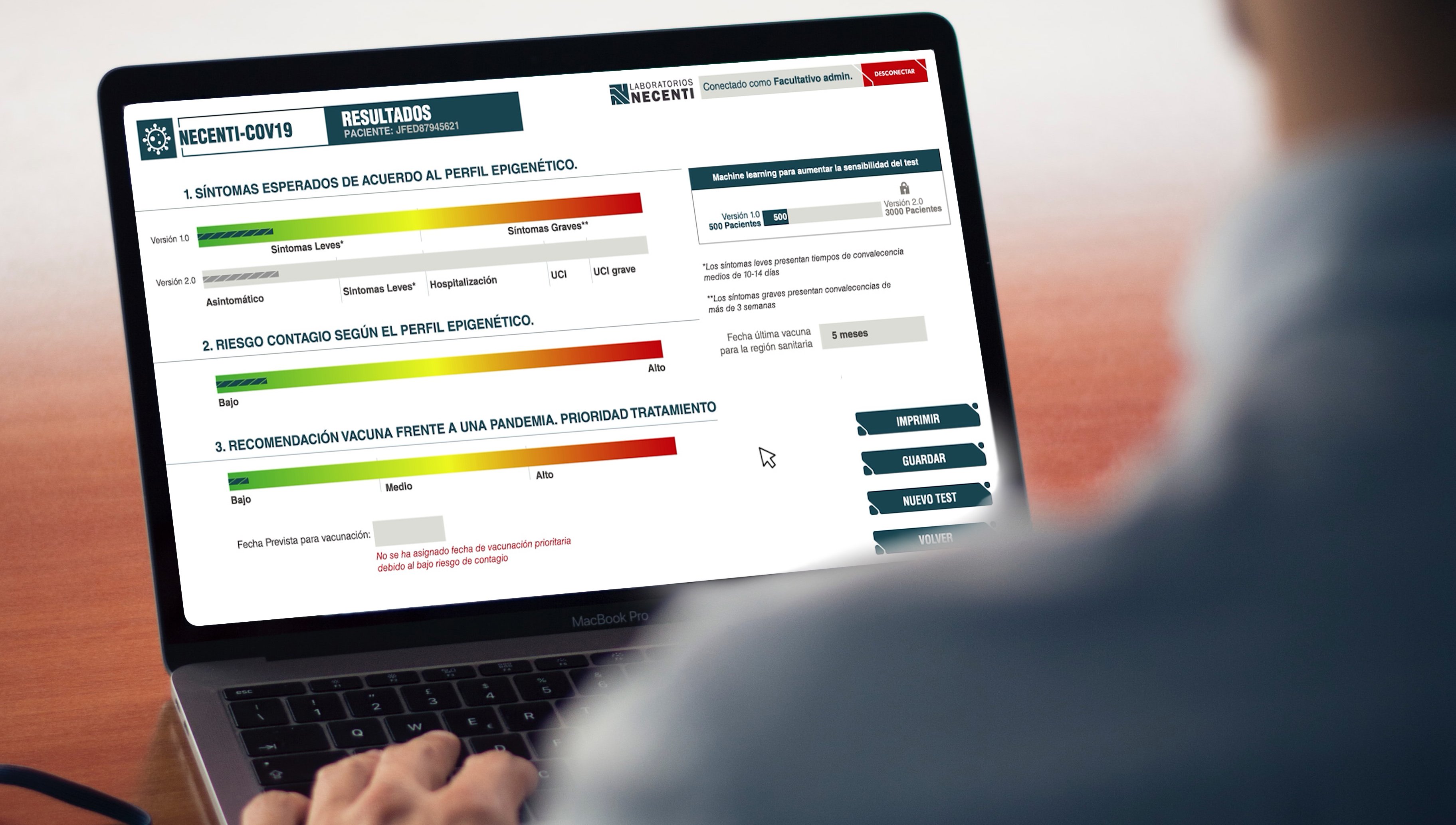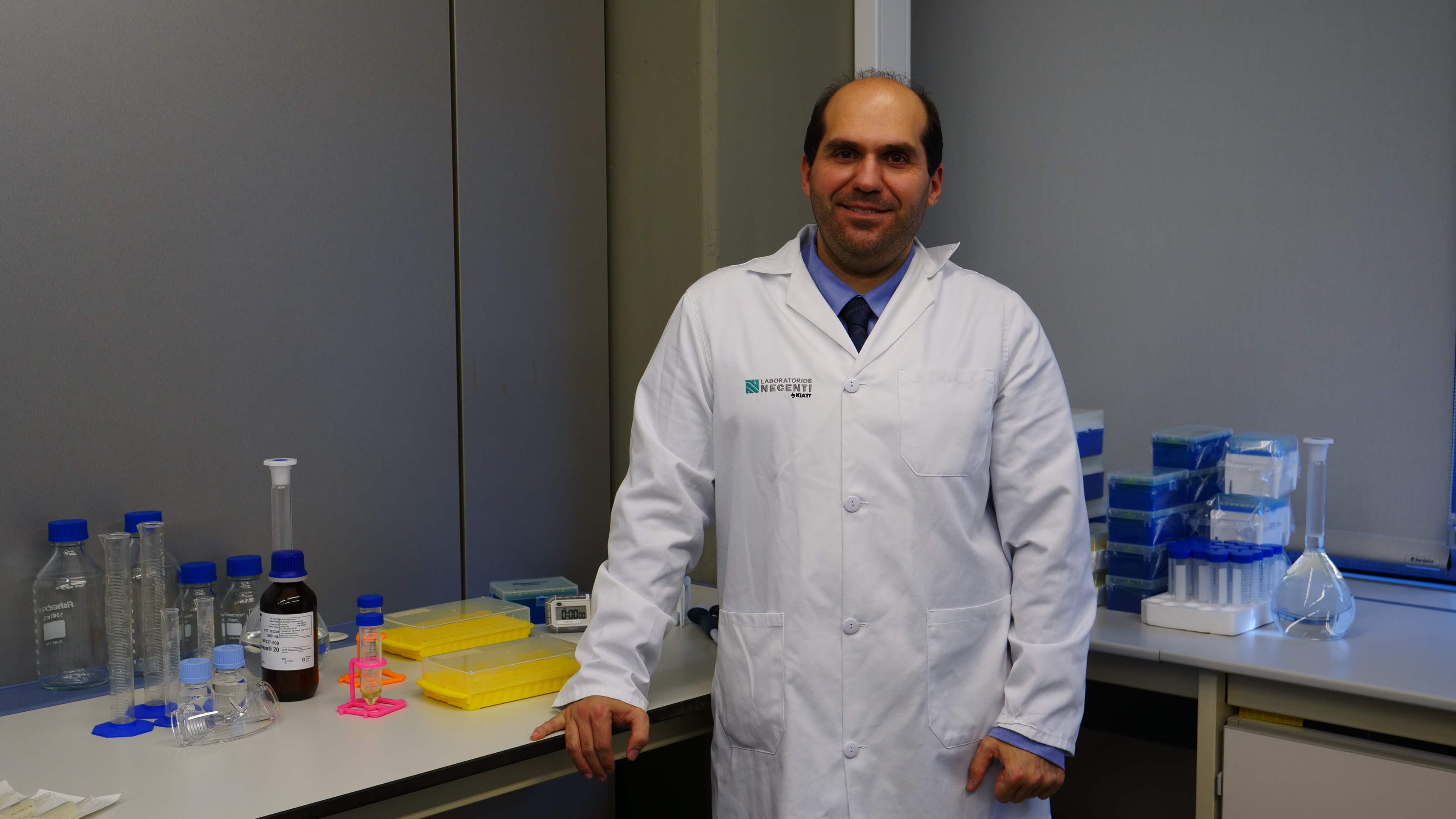The company's technology enables the early detection of diseases and the identification of how they will affect each individual
"When a person goes to the doctor because they have symptoms, because they have a disease, it is too late to take preventive measures" warns Sergio Caja, CEO and Scientific Director of Laboratorios Necenti. This biomedicine company, which won a laboratory at the University of Valencia Science Park through the VLC/StartUp programme, has created an epigenetic analysis platform that can predict the development of diseases an average of 10 years in advance. Its application is currently configured for the identification of coeliac disease (Celiac10) and COVID-19 (NECENTI-COV19).
With a reliability of almost 97%, the test consists of two phases. First, a questionnaire is carried out on the individual. This is followed by a blood test in which six parameters are measured at the molecular level. All this information is processed through the technology developed by Laboratorios Necenti, which will determine where the person is in a progression between the absence of the disease and its most severe symptoms.
"For a disease to occur, two components are needed: genetic and epigenetic. Genetics is the predisposition that I inherit from my parents towards some diseases and not others, and it weighs about 20% or so in the equation. Epigenetics is how my way of life and what surrounds me will condition and influence my genes to develop certain diseases or others. Epigenetics determines, by 80% or so, the development of the disease," explains Caja.
 Simulation of the platform developed by Necenti Laboratories for epigenetic analysis. Source: PCUV
Simulation of the platform developed by Necenti Laboratories for epigenetic analysis. Source: PCUV
Setting priorities
With this test, Laboratorios Necenti aims to "turn around" the way work against the new coronavirus has been carried out up to now. "It is not a question of understanding the virus, but of studying the person at the molecular level to find out how it would affect them and from there to prevent infection, adapting or changing their way of life" says Caja. For example, the application of this type of test in the population would make it possible to discern who is most vulnerable to the virus and thus the groups at risk that should receive the vaccine as a priority. It would also help to determine, for example, which workers should telework because they are at greater risk of serious illness.
According to the company, one of the advantages of its platform is that its effectiveness does not depend on the various mutations that SARS-CoV-2 develops over time.
The future of this technology lies in the design of a diagnostic kit that can be used in doctors' surgeries and that facilitates its routine use, not only in the prevention of COVID-19, but also in other diseases.
The effort made in adapting this platform for the epigenetic analysis of possible COVID-19 patients - from March to October 2020 - has earned Laboratorios Necenti the award for 'Best Startup' in the 2020 edition of the Paterna Ciudad de Empresas awards.
Detection and prevention of coeliac disease
Before the appearance of COVID-19, Laboratorios Necenti had spent years researching the use of epigenetics for the prevention of coeliac disease through the development of this platform.
This is how Celiac10 was born, which aims to detect coeliac disease in children under 6 months, that is, before they eat their first porridge, preventing years - and sometimes decades - of asymptomatic disease leading to the development of other diseases, such as cardiovascular disease or kidney problems. This early detection would make it possible for parents and paediatricians to provide a personalised follow-up and a gluten-free diet.
Sergio Caja assures that the ultimate goal of Laboratorios Necenti is that "precision medicine will eventually be installed in primary care consultations, which will empower the patient, as it is the person who, based on objective criteria, can make decisions regarding their health".


